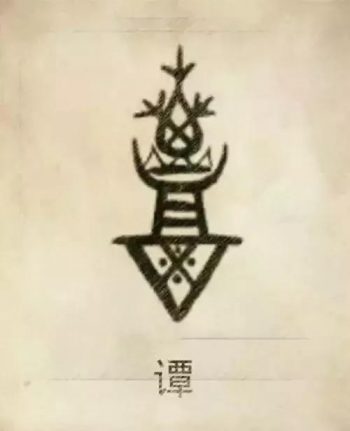The Tan(tán) surname isn’t just a family name—it’s a living archive of China’s cultural resilience. Born from the ashes of an ancient kingdom and shaped by ethnic diversity, the Tan clan embodies innovation and adaptability. For readers interested in genealogy or Asian history, this story reveals how a single surname can mirror a civilization’s evolution.

Ⅰ、Surname origins
1. Royal Beginnings
The surname originated in Shandong when the Zhou Dynasty granted the Gui clan control of the Tan Kingdom. After its conquest by Duke Huan of Qi, the last ruler’s descendants adopted “Tan” to honor their fallen homeland.
2. Cultural Adaptation
Name Evolution: During the Qin-Han era (221 BCE–220 CE), families with the surnames Tan(谈) and Qin (覃) changed to “Tan” to avoid political conflicts or linguistic shifts.
3. Ethnic Fusion:
Manchu & Mongol: Clans like the Manchu Daigiya and Mongol Tatars adopted “Tan” during the Qing Dynasty (1636–1912).
Indigenous Roots: Yao and Zhuang ethnic groups in southern China embraced the name during cultural integration movements.
Ⅱ、Legendary Figures
1. Historical Icons
Tan Zhong: A Tang Dynasty military strategist famed for outsmarting rebel forces.
Tan Lun: Ming admiral who fought Japanese pirates (wokou) alongside national hero Qi Jiguang.
2. Modern Trailblazers
Tan Sitong: Reformist martyr of the “Hundred Days’ Reform,” executed for advocating constitutional monarchy. His defiant poem “I Laugh at the Sky, Sword in Hand” remains iconic.
Tan Yankai: The first Premier of the Executive Yuan of the National Government, with profound calligraphyments, known as the "Number One Person of the Republic of China's Yan Style."
Tan Dun: Oscar-winning composer (Crouching Tiger, Hidden Dragon) bridging Eastern and Western musical traditions.
3. Tech & Industry
Tan Xuguang: CEO of Weichai Power, transforming China into a global leader in diesel engine tech.
4. Academic Legacy
Tan Tieniu, AI pioneer advancing facial recognition systems worldwide.
Ⅲ、Cultural Legacy
1. Family Values
Ancestral Halls: The “Hall of Wise Judgment” commemorates Tan Zhong’s strategic genius.
Mottos: “Farm with diligence, read with purpose” reflects Confucian ideals of balanced living.
2. Character Meaning
"Tan" is "filling the soil". The "Shuowen Jiezi" interprets glyph as the combination of "soil" and "Shu" (tool), symbolizing the reverence for land in the agricultural civilization.
3. Festivals
Dragon Boat Legacy: Guangdong’s Tan clan races honor ancestral unity.
Tan Gong Ritual: Hunan’s ceremonial offerings blend Taoist and folk traditions.
Ⅳ、Modern Connections
1.Global Diaspora:
Fujianese Tan families migrated to Malaysia in the 1800s, building Penang’s historic Tan Clan Ancestral Hall. Today, North American Tan associations preserve traditions.
2.Tech Powerhouse:
Weichai Power, led by Tan Xuguang, now supplies 15% of the world’s heavy machinery engines.
Conclusion
The Tan surname is a testament to cultural reinvention—from displaced royals to AI innovators. Like America’s immigrant stories, it shows how names carry legacies of struggle, adaptation, and triumph. For history enthusiasts or Tan descendants abroad, it’s a bridge to understanding China’s pluralistic identity.